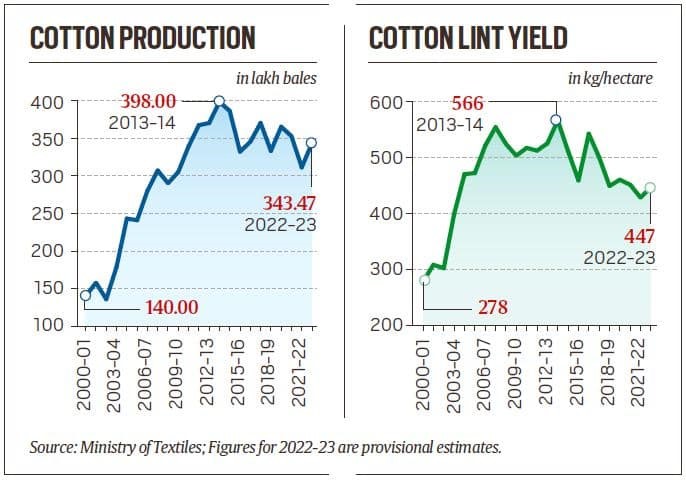The pink bollworm has taken a toll on the fibre crop, even as new “mating disruption” technologies to control the pest are showing promise.
India is the only country in the world where all the four cultivated species are grown on commercial scale.
|
Status of Cotton Production & Consumption |
|
Ginning is the process of separating the fibres from the seed. The raw un-ginned cotton harvested by farmers is called kapas which has the white fluffy fibre or lint (36%) and seed (62%).

Bt cotton is the only GM crop that is allowed in India. Bt cotton has been genetically modified by the insertion of one or more genes from a common soil bacterium, Bacillus thuringiensis.
Reasons for India’s Falling Cotton Production
|
Steps taken to promote Cotton Production |
|
References